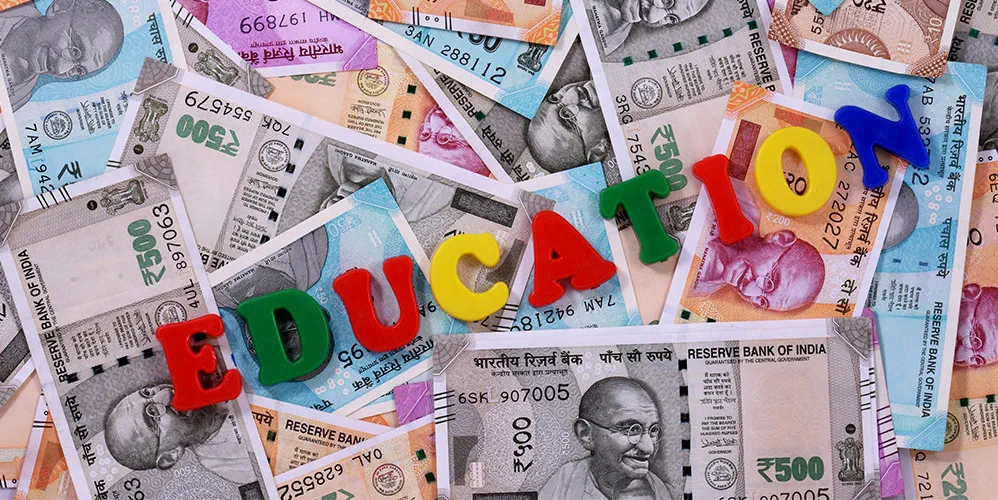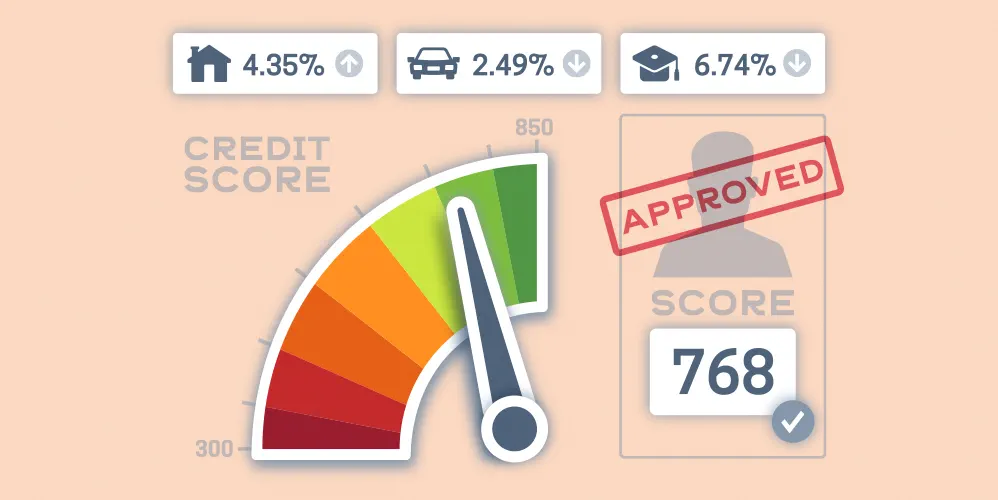
A Complete Guide on Education Loan
10 Nov 2022

Table of Content
-
What is Education Loan
-
What are the types of Education Loan?
-
How to get Education Loan
-
Eligibility Criteria
-
Eligible Courses
-
Eligible Institutions
-
Things You Should Know Before You Start Your Education Loan Process
-
Tips for education loan application
-
How is EMI Calculated for Education Loan?
-
Student Education Loan Repayment System
-
Why Choose Bank of Baroda Education Loan
What is Education Loan?
An Education Loan is a loan borrowed for funding higher education and higher-education related expenses. These loans cover the cost of tuition, books accommodation and other expense required to complete the course.
What are the types of Education Loan?
- Domestic Education Loan: to study within a country.
- Study Abroad Education Loan to study in foreign universities.
- Graduate Education Loans for students who want to pursue a postgraduate course.
- Undergraduate Education Loans for students who want to pursue a graduate course.
- Professional Education Loans for working professionals who want to enhance their employment skills.
- Collateral Based Education Loan against deposits, property, and securities.
How to get Education Loan?
Here is a comprehensive guide to education loan, its eligibility criteria and documents required for education loan. We have also listed a few helpful tips that applicants should keep in mind.
Eligibility Criteria
Any student who wishes to pursue higher education can seek financial aid after fulfilling the eligibility criteria. The criteria are not limited to individual eligibility; the lender must consider the type of course and institutions as well.
Eligible Courses
Lenders usually offer education loans for higher degrees, such as:
- Bachelor's degree (B.Com, B.Sc., B.A, B.Sc.IT, B.M.S, LL. B., B.E, MBBS etc.)
- Master's degree (M.Com, M.Sc., M.A, M.Sc.IT, LL. M., MBA, etc.)
- Doctor of Philosophy (PhD) and Doctoral degree
- Diploma courses
- Certificate course
Some lenders will extend an education loan if you wish to pursue professional or certificate courses such as:
- Industrial Training Institute (ITI) courses
- Government-backed vocational courses
- Courses by National Skill Development Corporation, State Skill Corporations or State Skill Missions
- Job-oriented diplomas
- Courses held by recognised bodies in aeronautics, pilot training or shipping in India or abroad.
Eligible Institutions
Apart from the courses, the institution you are applying to also plays a major role as well. Reputed academies or universities are favourable when it comes to lenders approving education loans. Since the students will be paying the loan, the lender must be assured that the students study in a good college and get a good job to pay off the loan. “Most of the banks are having its own list of premium colleges/Institutes. Collateral free Loans are available in selected premium institutes. The students pursing study in these premium colleges/ Institutes will have extra benefit in ROI. You are more likely to get approval on your education loan if you are applying to study at:
- Universities and colleges recognised by University Grants Commission (UGC) Delhi, All India Council for Technical Education (AICTE), Institute for Mediation & Conflict Resolution (IMCR), etc. and reputed polytechnic colleges.
- Reputed foreign universities.
Things You Should Know Before You Start Your Education Loan Process
While applying for an education loan, the following are the standard regulations you must follow:
- You must apply for an education loan with a co-applicant, who can be your parents or spouse.
- A guarantor or security is not mandatory for loan amounts less than INR 4 Lakh.
- A third-party guarantor is mandatory for loan amounts greater than INR 4 Lakh.
- Collateral is necessary for loan amounts greater than INR 7.5 Lakh.
- Insurance is mandatory for students who wish to pursue education abroad.
Tips for Education Loan Application
Here are a few tips you ought to know before applying for an education loan:
- The responsibility of repaying the education loan solely falls on you if you are a student. Therefore, plan your higher studies considering your family's financial capabilities for worst-case scenarios.
- Read all the terms and conditions word to word to check for any hidden costs.
- Select a bank that offers a good moratorium period, in case of delays due to unforeseen conditions.
- As a female student applicant, you can enjoy concession on the interest rates. So, ensure that you check with your bank before applying.
- If you wish to study abroad, look for part-time jobs around your campus, as the education loan does not cover daily expenses like grocery shopping or commuting.
How is EMI Calculated for Education Loan?
EMI for an education loan is calculated with the help of the mathematical formula:
EMI amount = [P x R x (1+R)^N]/[(1+R)^N-1] where
P is the principal amount
R is the rate of Interest
N is the number of years
Student Education Loan Repayment System
Almost all banks grant an education loan repayment period of 12 years to 15 years excluding the moratorium period, although students can also clear the loan before the stipulated period of time. It is called the ‘prepayment’ of a loan for which some banks charge a processing fee as well.
Why Choose Bank of Baroda Education Loan?
An education loan is the most popular loan amongst students and professionals who wish to pursue higher studies. At Bank of Baroda, we want students to opt for higher education by facilitating a hassle-free loan application process.
- No Processing Fees: We charge zero processing fees on our collateral-free education loan in India.
- Affordable Interest Rates: Bank of Baroda offers competitive interest rates.
- Higher Loan Limit: You enjoy a high loan amount of up to INR 80 Lakhs for top-tier institutes and for Medical and aviation higher loan limit is Rs.125 Lakhs in India. For study abroad Maximum Loan limit is Rs.150 Lakhs for premier institutes.
- Flexible Repayment Period: You can repay the loan in a period of 10 to 15 years after the moratorium period.
- Tax Benefits: After disbursal, you are eligible for education loan tax benefits under Section 80C of the Income Tax Act, 1961.
The high costs of a university degree should not stand between you and your dreams. Reach out to us at Bank of Baroda today to know how we can help you with the right education loan.
Popular Articles
Guide to Getting Agriculture Loan: Application, Eligibility & Required Documents
Tag Clouds
Related Articles










Guide to Getting Agriculture Loan: Application, Eligibility & Required Documents
-
Disclaimer
The contents of this article/infographic/picture/video are meant solely for information purposes and do not necessarily reflect the views of Bank of Baroda. The contents are generic in nature and for informational purposes only. It is not a substitute for specific advice in your own circumstances. Bank of Baroda and/ or its Affiliates and its subsidiaries make no representation as to the accuracy; completeness or reliability of any information contained herein or otherwise provided and hereby disclaim any liability with regard to the same. The information is subject to updation, completion, revision, verification and amendment and the same may change materially. The information is not intended for distribution or use by any person in any jurisdiction where such distribution or use would be contrary to law or regulation or would subject Bank of Baroda or its affiliates to any licensing or registration requirements. Bank of Baroda shall not be responsible for any direct/indirect loss or liability incurred by the reader for taking any financial decisions based on the contents and information mentioned. Please consult your financial advisor before making any financial decision.
What are the Different Types of Education Loan?
There is no doubt that education is of prime importance not only in India but globally as well. It is one of the sole factors that help us become literate, well-mannered and responsible individuals personally, socially, and professionally. Though a basic education is generally accessible, people prefer quality education to elevate their educational qualifications to get high-paying jobs.
6 Best Tips to Repay Your Student Loan Early
An education loan is truly a boon for students who want to pursue higher studies but cannot afford to do so on their own. Many people end up selling family assets - such as gold – in order to pursue their higher studies. With the help of an education loan, you can protect these valuable assets and still not miss out on studying further.

